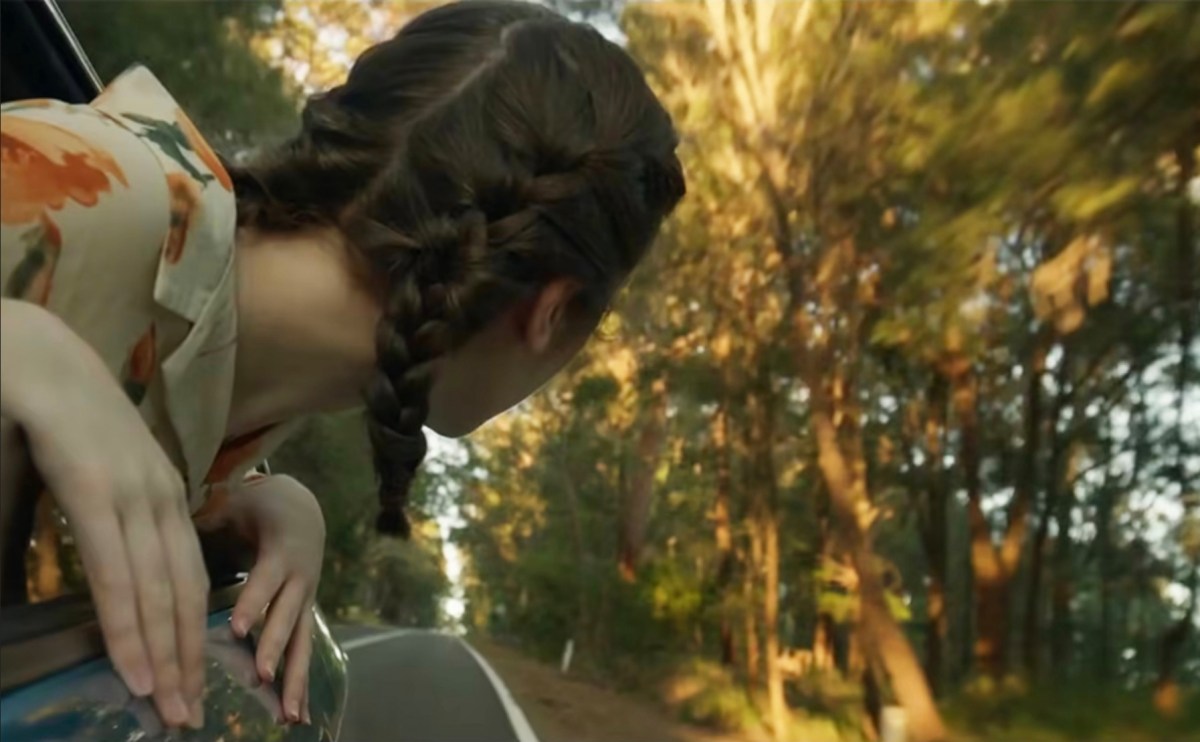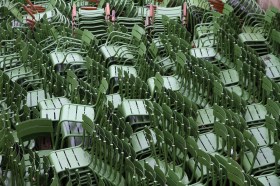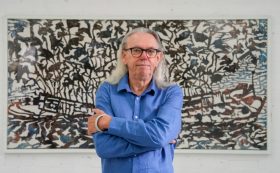While a degree in moving image studies in the past may have prepared you for directing, cinematography or screenwriting, today the gamut of screen careers demands a nimbler approach.
Dr Anna Broinowski, Director of the Master of Moving Image (MMI) program offered by Sydney College of the Arts (SCA), says, ‘We believe that you learn by doing,’ following a model set by the London Film School.
‘What we’re trying to do is enable our students to graduate with a portfolio of film works that they can treat almost like a business card, to get themselves employed in whatever part of the screen industry or film industry they want to work in, when they graduate,’ Broinowski tells ArtsHub.
Broinowski reports that, from 2024, the degree will change its name to Master of Film and Screen Arts, to better reflect that the course is ‘designed for people with some knowledge already in screen creation and production, but who want to advance their practice and take a deep dive into areas of speciality’.
The idea of pushing a career further can also mean ‘pushing themselves sideways,’ adds Broinowski. The MMI combines traditional and commercial film direction, scripting and production techniques, but places equal footing on emerging directions in the cinematic arts, including interactivity, mixed reality and multi-platform digital content creation.
‘Our students may want to improve their skills in what you’d call more conventional filmmaking techniques – screenwriting, screen directing, cinematography, production, design, animation, special effects – but we also teach augmented reality, virtual reality films and immersive films. Our students can learn how to make 360-degree videos,’ she continues.
‘You know how vinyl is the new black in music? Well, analogue is the new black in film,’ she says. ‘We are the only university in Australia that has fully functioning, hand-processing analogue film labs and scratch animation labs – places where you can actually make a film without a camera – and this is something that’s becoming newly popular again.
‘So, the range of offerings is big, but the degree itself is very tightly managed. We don’t take hordes of students,’ Broinowski says of the MMI’s selective quality.
Classes are kept to between 19 and 24 students, and about 70% to 80% is hands-on teaching. She adds that each student should graduate with at least five to eight professional standard short films, video works or animations, which are then designed to go on and play in film festivals. ‘And a lot of them have,’ she says, noting students have been able to show their work at festivals in Tokyo, Italy, Russia, China and even Flickerfest in Sydney, following graduation.
‘Basically, no one teaches in the MMI program who is not also practising what they teach, because that way we can bring knowledge and experience directly from the field, and also facilitate introductions and connections between our students and the production industry in Sydney, and beyond,’ explains Broinowski.
Red carpet moments don’t have to wait
Each December, SCA presents the MMI Showcase and Awards night. ‘The showcase is designed to be both a professional film festival, red carpet-style gala night for our students, but also a chance to celebrate, digest and interact with the films that our students are making, and the stories they’re telling,’ says Broinowski.
‘It’s a really successful event, partly because we’re Sydney University – we’re able to attract a pretty high calibre of keynote speakers and jurors, such as Alex Proyas (the maker of I, Robot) and actor Miranda Otto.’
View awarded works of MMI students – SCA MMI Awards Showcase on Vimeo.
She adds that the degree has global recognition, attracting students from the US, China, India and Europe.
‘There are quite a few masters film degrees that you can do in Australia now, but the advantage we offer is that we are a film school within an art school. So immediately, you’re plugging into a really dynamic, engaged and innovative arts community.
‘There are also chances to cross-collaborate with many other researchers and students across the university body, and this is really exciting. Just recently, we’ve set up a partnership with the Sydney Conservatorium, so its composers are now writing music for our masters film students. That’s brilliant because it saves our filmmakers from having to beg and borrow music, or go to music libraries, but also is a great way of building up what could be a very rewarding partnership that continues,’ says Broinowski.
Duration: 1.5 years full-time (also available part-time)
Intakes: Enrolments are ongoing, with a Semester 1 and Semester 2 starting date.
Location: Sydney College of the Arts, University of Sydney, Camperdown Campus.
Applications for the Master of Moving Image are now open.
View awarded works of MMI students – SCA MMI Awards Showcase on Vimeo.





